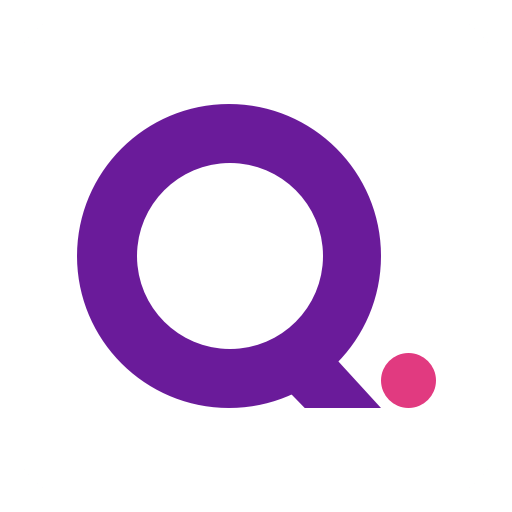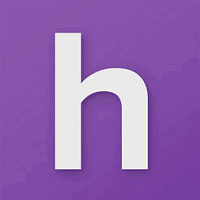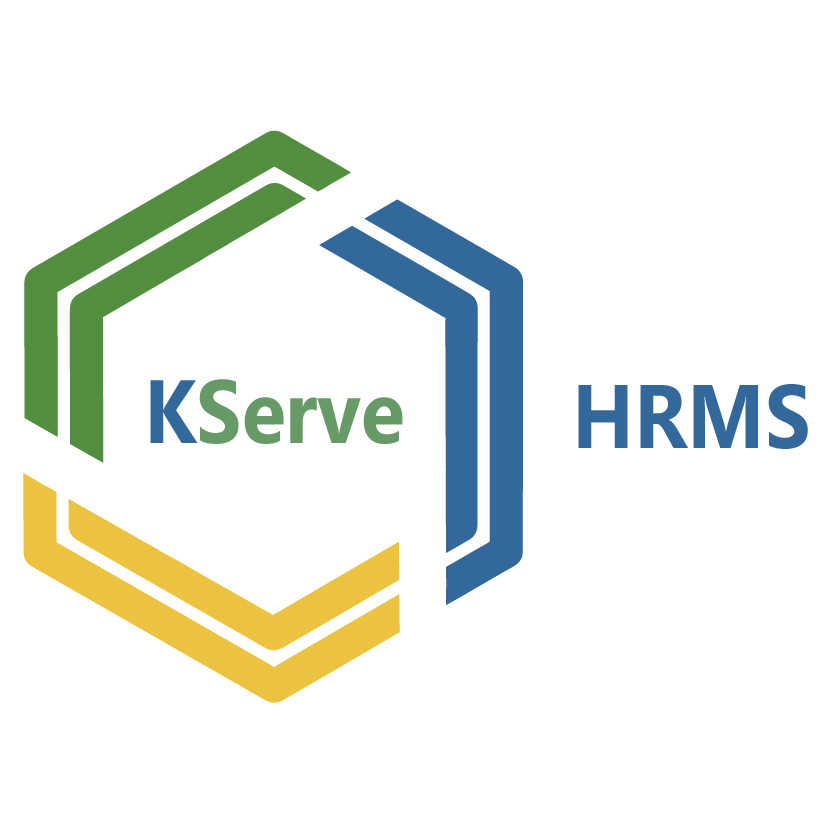Description

QPage

HRweb
Comprehensive Overview: QPage vs HRweb
As of my latest available data, here’s a comprehensive overview of QPage and HRweb:
QPage
a) Primary Functions and Target Markets:
- Primary Functions: QPage is primarily designed as an AI-driven recruitment and HR tool that automates talent acquisition processes. It focuses on automating tasks like sourcing candidates, screening resumes, scheduling interviews, and providing analytics for HR decisions. It aims to streamline hiring workflows and enhance decision-making with data-driven insights.
- Target Markets: QPage primarily targets small to medium-sized businesses (SMBs) who need efficient recruitment processes without the infrastructure of larger enterprises. It may also appeal to startups and tech-savvy organizations valuing innovative and automated HR tools.
b) Market Share and User Base:
- QPage, being a relatively newer entrant compared to some longer-established HR platforms, might not have a substantial market share. However, its competitive pricing and focus on automation position it well among SMBs and emerging markets which are increasingly adopting digital HR solutions.
- Its user base is likely to be growing within sectors that are prioritizing digital transformation in HR and are open to leveraging AI for recruitment efficiency.
c) Key Differentiating Factors:
- QPage leverages artificial intelligence to a great extent, differentiating itself with features like AI-driven candidate matching and predictive analytics.
- Its user interface is designed to be intuitive, which can offer a less steep learning curve for new users compared to more complex systems.
- QPage often highlights its integration capabilities with various third-party platforms, allowing for a smoother workflow integration for organizations with existing HR systems.
HRweb
a) Primary Functions and Target Markets:
- Primary Functions: HRweb is a comprehensive HR management suite that offers tools for performance management, applicant tracking, time tracking, and employee record management. Its functionalities cover a wide range of HR activities from recruitment to performance assessment.
- Target Markets: HRweb is aimed at small to medium-sized businesses that need an all-in-one HR solution. It is suitable for organizations seeking to consolidate various HR tasks into a single platform without investing in multiple specialized tools.
b) Market Share and User Base:
- HRweb has a more established presence compared to newer entrants in the HR tech space. This can translate to a stable user base, particularly among companies that value the reliability of using a more longstanding product.
- It’s often favored by organizations looking for a cost-effective, all-in-one HR solution that is easy to implement and doesn't require substantial customization or complex integrations.
c) Key Differentiating Factors:
- HRweb provides an all-in-one solution, which can be a significant advantage for businesses looking to centralize their HR functions without dealing with multiple vendors.
- The platform has a strong focus on performance management tools, making it particularly appealing to organizations looking to integrate recruitment and performance tracking.
- HRweb emphasizes ease of use and customer support, providing a balanced blend of features and user experience that appeals especially to less tech-savvy users or those without dedicated IT support.
Conclusion
While both QPage and HRweb target small to medium-sized businesses, QPage stands out with its emphasis on AI-driven automation and seamless third-party integrations, appealing to tech-oriented companies. On the other hand, HRweb offers a more traditional approach with a comprehensive suite covering a broad spectrum of HR functions, ideal for businesses that prefer a holistic and straightforward HR management platform. The choice between these products often depends on an organization's specific needs, whether they prioritize innovative tech features or a complete, integrated HR solution.
Contact Info

Year founded :
2020
Not Available
Not Available
United Kingdom
Not Available

Year founded :
Not Available
Not Available
Not Available
Not Available
Not Available
Feature Similarity Breakdown: QPage, HRweb
To provide a feature similarity breakdown for QPage and HRweb, let's compare their offerings in the areas you've outlined:
a) Core Features in Common:
-
Applicant Tracking System (ATS):
- Both QPage and HRweb likely include core ATS functionalities that help manage the recruitment process, from job postings to candidate tracking.
-
Resume Parsing:
- These platforms often feature resume parsing capabilities to automatically extract candidate information and populate their profiles.
-
Job Posting Management:
- Both solutions probably allow users to post jobs to various job boards and career sites seamlessly.
-
Candidate Management:
- Each platform likely offers tools to manage candidate communications, status updates, and interview scheduling.
-
Collaboration Tools:
- Both might offer internal notes, commenting systems, or collaboration features to enable team discussions about candidates.
-
Analytics and Reporting:
- Analytics dashboards and reporting tools are common for tracking the recruitment process's effectiveness and making data-driven decisions.
b) User Interface Comparison:
-
Design and Aesthetics:
- While specifics can vary without seeing the current UI, both platforms typically emphasize a clean, intuitive design suitable for HR tasks. QPage might have a more modern or customizable interface, depending on the latest updates.
-
Usability:
- Usability is key in recruiting software. Both solutions likely aim for user-friendly navigation with straightforward access to core functionalities. Users may find one platform easier to navigate based on personal preference or specific experience enhancements.
-
Customization:
- They may offer different levels of interface customization, with options to tailor the dashboard layouts or configure workflows according to organizational needs.
c) Unique Features:
-
QPage:
- AI-Powered Features: QPage might leverage AI more extensively for applicant ranking, predictions, or automated job matching.
- Integrations: It may offer unique integrations with other tools or platforms not available in HRweb.
- Customization & Flexibility: Potentially more extensive customization options or unique workflow automation capabilities.
-
HRweb:
- Performance Management: HRweb might have more built-in features related to employee performance management or HR functions beyond recruiting.
- Compliance Tools: It could offer unique tools focused on ensuring recruitment compliance or specific reporting metrics.
- Employee Self-Service Portal: Features that support broader HR needs, potentially setting it apart with wider HR capabilities.
To gain a clear insight, evaluating the latest detailed feature lists from both QPage and HRweb, including user reviews or demos, would be crucial. This will ensure understanding of current strengths and any new features that may have been recently introduced.
Features

Not Available

Not Available
Best Fit Use Cases: QPage, HRweb
QPage and HRweb are both HR management tools that serve different needs and business types. Here's how each can be best utilized:
QPage
a) Best Fit Use Cases:
- Startups and SMBs: QPage is particularly well-suited for startups and small to medium-sized businesses (SMBs) that need a robust yet straightforward solution to streamline their recruitment processes. Its user-friendly interface and automation features make it an ideal choice for companies with limited HR resources.
- Tech-Savvy Teams: Ideal for teams that are comfortable with digital tools and can leverage the AI-driven recruitment features efficiently.
- Project-Based Hiring: QPage is also a good fit for businesses that often engage in project-based hiring and need an agile tool to manage high volumes of applicants quickly.
- Remote and Distributed Teams: Its cloud-based nature supports remote work environments by allowing seamless collaboration among HR teams spread across different locations.
b) Industry Verticals:
- Technology: With features like AI-driven candidate screening, it's particularly advantageous for tech companies that need to assess specialized skill sets.
- Creative Industries: Its collaborative tools are beneficial for agencies or companies that rely on remote or freelance talent.
HRweb
a) Preferred Use Cases:
- Established Businesses: HRweb is suitable for more established companies that may not need as rapid hiring but are looking for comprehensive HR solutions beyond recruitment.
- Companies with Mature HR Processes: It is beneficial for organizations that require robust HR functionalities, including performance management, employee tracking, and regulatory compliance.
- Businesses with Seasonal Fluctuations: Such companies might use HRweb to maintain a flexible database and management system that can handle varied employment needs throughout the year.
b) Industry Verticals:
- Retail and Hospitality: These sectors benefit from HRweb’s capability to manage large, often fluctuating workforces and maintain compliance.
- Healthcare: Offers features essential for handling sensitive employee data and ensuring regulatory compliance.
d) Catering to Different Industries and Company Sizes:
-
Industry Versatility:
- QPage: Its features are versatile enough to be adapted by various industries that prioritize rapid hiring processes. However, it might be more restrictive in non-digital contexts.
- HRweb: Offers greater versatility in industries where consistent HR management processes are vital, regardless of the digital or non-digital nature of the business.
-
Company Size:
- QPage: Best for smaller to medium-sized enterprises, especially those scaling quickly and requiring effective hiring processes without a large HR team.
- HRweb: More suitable for medium to large-sized companies that require comprehensive HR management solutions integrated across various departments and operational areas.
In summary, the choice between QPage and HRweb largely depends on the specific needs and scale of the organization, with QPage focusing more on recruitment efficiency for startups and tech-savvy companies, while HRweb offers broader HR management functionality for established businesses across various industries.
Pricing

Pricing Not Available

Pricing Not Available
Metrics History
Metrics History
Comparing undefined across companies
Conclusion & Final Verdict: QPage vs HRweb
To deliver a comprehensive conclusion and final verdict for the HR solutions, QPage and HRweb, it's important to evaluate their overall value, pros and cons, and provide recommendations for users deciding between the two.
a) Best Overall Value: Considering all factors such as pricing, features, scalability, user interface, and customer support, the best overall value will depend on the specific needs of the organization. However, generally speaking, if an organization prioritizes modern interfaces and AI capabilities, QPage may provide better value. On the other hand, if an organization requires comprehensive traditional HR functionalities and detailed analytics, HRweb might be more beneficial.
b) Pros and Cons:
QPage:
-
Pros:
- Innovative Features: Incorporates AI technology and automation, making recruitment processes more efficient.
- User-Friendly Interface: Designed for a modern user experience with intuitive navigation.
- Customization: Offers a reasonable degree of customization for specific organizational needs.
-
Cons:
- Feature Set: May lack some traditional HR features that more established platforms like HRweb offer.
- Maturity: Newer to the market, which might mean fewer case studies or historical data on long-term performance.
HRweb:
-
Pros:
- Robust Features: Offers a comprehensive set of traditional HR management tools.
- Proven Track Record: More established in the market with a known history in supporting HR functions.
- Detailed Reporting: Provides detailed analytics and reporting capabilities for HR data.
-
Cons:
- User Interface: Can appear dated compared to newer platforms focusing on modern UX/UI design.
- Lack of Cutting-Edge Tech: May not include more advanced technologies like AI and machine learning for recruitment and management processes.
c) Recommendations:
-
For Technology-Forward Organizations: If your organization is seeking to innovate and implement AI within the recruitment processes, QPage can offer cutting-edge solutions for automation and efficiency.
-
For Organizations Needing Comprehensive HR Solutions: If your company relies heavily on traditional HR functionalities and values a platform with a strong historical reputation, HRweb may be the better choice.
-
Scalability Considerations: Startups or smaller companies planning rapid growth might benefit from QPage's adaptive and modern features, whereas larger enterprises needing consistency and comprehensive features could find value in adopting HRweb.
Ultimately, when deciding between QPage and HRweb, it is crucial to evaluate the specific needs, size, and future growth plans of your organization to choose the product that aligns best with your expectations and objectives. Conducting a trial or demo of both products can provide greater insights into how each system fits into the existing workflows of your HR department.
Add to compare
Add similar companies



